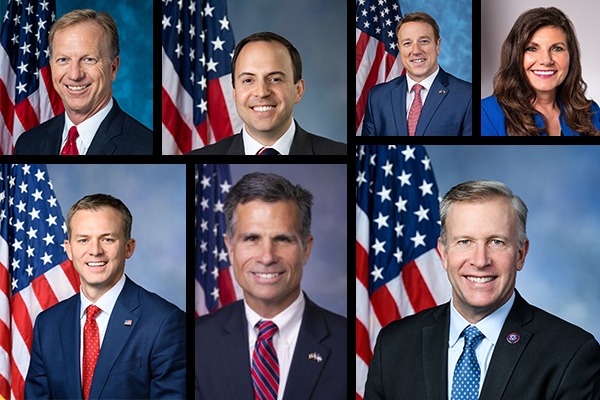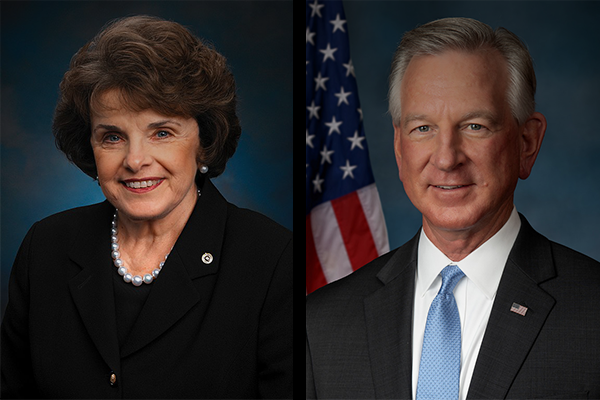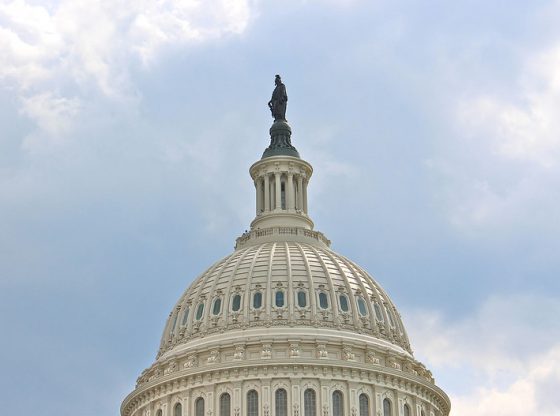Insider spent months digging into the finances of lawmakers and what was found is shocking. Dozens of America’s top lawmakers were found to have violated conflict-of-interest laws and over 150 staffers are potentially guilty of the same, the madness doesn’t stop there though. Numerous members of Congress were found to be investing into industries that they oversee in an official capacity as lawmakers. If we couple the findings of Insider’s investigation with other information about lawmakers that has gone under the table as far as reporting is concerned we get to see a damning portrait of our elected officials.
Overview
The report from Insider found that 52 members of Congress and 182 Senior-level Congressional staffers had violated federal conflicts-of-interest laws. A majority of members of Congress, Democrat and Republican, trade stocks although it should be said that most do report their trades in a timely manner consistent with the law.
Violations of the STOCK Act
Numerous officials were found to have violated the Stop Trading on Congressional Knowledge Act of 2012(STOCK Act). This legislation was intended to stop members of Congress from engaging in a form of insider trading while still allowing them, and their families, to trade stocks.
Our elected officials have access to information that the general public does not have access to, this information gives them a key advantage on the market that the American people do not get to experience. The legislation allows for members of Congress to trade stocks so long as they disclose information related to these trades.
Insider looked into what specific stocks lawmakers were putting their weight behind. Among the most popular stocks are those of companies in the tech industry, the pharmaceutical industry, the defense industry, and the fossil fuel industry.
It was found that 72 members of Congress owned stock in Apple. This makes Apple stock the number one stock owned by members of Congress. Microsoft was the second most popular stock in Congress. It was found that 64 members of Congress owned stock in the tech company. Falling just behind these companies was Alphabet, Disney, and Amazon. 45 members of Congress own stock in Alphabet and Disney while Amazon stock is owned by 44 members of Congress.
-Johnson & Johnson and Pfizer were regarded as some of the most held pharmaceutical stocks in Congress. It is important to note that these companies were involved in the making of the Covid-19 vaccine and other pandemic products such as the upcoming “Covid Pill” from Pfizer.
-Exxon Mobil stock is owned by 36 members of Congress, some of which oversee the fossil fuel industry. This makes Exxon Mobil the 12th most popular stock in Congress.
-Roughly 75 lawmakers held stocks in major pharmaceutical companies such as Moderna, Johnson & Johnson, and Pfizer. These lawmakers had traded these stocks throughout the pandemic, especially in the early weeks of the pandemic.
-15 lawmakers directly responsible for shaping U.S. foreign policy and general defense policy had been actively investing in major military contracting firms.
-More than a dozen Democrats who tend to vote for so-called “Green” legislation were found to have invested in fossil fuel companies or other companies that have had a negative impact on the environment.
-Several members of Congress who have been outspoken about the media and Big Tech were found to have traded the stock of companies like Facebook, Twitter, Comcast, Disney, and The New York Times.
-Multiple lawmakers and their staffers were found to have invested into Cryptocurrency such as Bitcoin and Ethereum. These same lawmakers may soon have the ability to regulate these Cryptocurrencies.
Metrics Used by Insider
Insider used several metrics to calculate the levels of corruption for any particular member of Congress; these levels are described in the report as Solid, Borderline, or Danger.
In order for a lawmaker to get the solid rating they need to practically have no violations of the STOCK Act or any other negative mark from Insider’s other metrics.
The metrics used by Insider are as follows; STOCK Act violations, Staffer STOCK Act violations, legibility of disclosures(the form required in the STOCK Act), financial amendments filed, whether or not the lawmaker has a qualified blind trust, and whether or not the lawmaker even trades stock.
Four Democrats were given the Danger ranking by Insider, meaning that they had numerous violations of ethics or the STOCK Act.

Rep. Susie Lee(D-NV): Representative Susie Lee was found to have over 200 late disclosures that totaled over $260,000. Rep. Lee did not respond to Insider when asked about whether or not fines associated with these violations were paid.
Rep. Tom Malinowski(D-NJ): Representative Tom Malinowski was found to have 145 late disclosures that totaled over $845,000. Rep. Malinowski had filed an amendment on one personal financial disclosures as a result of errors on the document. When asked by Insider Malinowski claimed to have paid all of the fines associated with these violations but did not provide any proof.
Rep. Sean Patrick Maloney(D-NY): Representative Sean Patrick Maloney was found to have 8 late disclosures that totaled over $11,000. One senior staffer working for Rep. Sean Patrick Maloney was found to have violated the STOCK Act. Rep. Maloney did not respond to Insider when asked about whether or not fines associated with these violations were paid.
Rep. Tom Suozzi(D-NY): Representative Tom Suozzi was found to have roughly 300 late disclosures that totaled over $3,000,000. Rep. Suozzi did not respond to Insider when asked about whether or not fines associated with these violations were paid.
Seven Republicans were given the Danger ranking by Insider, meaning that they had numerous violations of ethics or the STOCK Act.

Rep. Pat Fallon(R-TX): Representative Pat Fallon was found to have 118 separate violations of the STOCK ACT. These violations totaled, at least, $9,000,000. When asked by Insider Fallon claimed to have paid all of the fines associated with these violations but did not provide any proof.
Rep. Lance Gooden(R-TX): Representative Lance Gooden was found to have violated the STOCK Act 12 times. These violations totaled at least $20,000. Rep. Gooden did not respond to Insider when asked about whether or not fines associated with these violations were paid.
Rep. Diana Harshbarger(R-TN): Representative Diana Harshbarger was found to have violated the STOCK Act on 728 separate occasions, these trades totaled over $700,000. Rep. Harshbarger did not respond to Insider when asked about whether or not fines associated with these violations were paid.
Rep. Kevin Hern(R-OK): Representative Kevin Hern was found to have violated the STOCK Act 25 times and has filed 1 amendment to their personal financial disclosures as a result of errors found in those disclosures. The violations of the STOCK Act totaled over $1,000,000 and Rep. Hern did not respond to Insider when asked about whether or not fines associated with these violations were paid.
Rep. Chris Jacobs(R-NY): Representative Chris Jacobs was found to have violated the STOCK Act 12 times. These violations totaled more than $350,000. Insider also found that Rep. Jacobs had a staffer that had violated the STOCK Act. Rep. Jacobs did not respond to Insider when asked about whether or not fines associated with these violations were paid.
Rep. Dan Meuser(R-PA): Representative Dan Meuser was found to have violated the STOCK Act 36 times. These violations totaled more than $120,000. When asked by Insider Meuser claimed to have paid all of the fines associated with these violations but did not provide any proof.
Rep. Blake Moore(R-UT): Representative Blake Moore was found to have violated the STOCK Act 76 times. These violations totaled roughly $76,000. A senior staffer working for Rep. Moore was found to have violated the STOCK Act. Rep. Moore provided Insider with evidence that he had paid all fines associated with fines from these violations of the STOCK Act.
The report from Insider also detailed how two US Senators, one Democrat and one Republican, violated the STOCK Act to an extreme degree.

Sen. Tommy Tuberville(R-AL): Senator Tommy Tuberville was found to have 132 separate violations of the STOCK Act. When asked by Insider Tuberville claimed to have paid all of the fines associated with these violations but did not provide any proof.
Sen. Dianne Feinstein(D-CA): Senator Dianne Feinstein was found to have violated the STOCK Act one time. It was also found by Insider that staffers working under Feinstein had violated the STOCK Act on 3 separate occasions. When asked by Insider Feinstein claimed to have paid all of the fines associated with these violations but did not provide any proof.
As for the consequences these lawmakers and their staffers face for these egregious ethics violations, there are virtually none. Lawmakers may face fines for violations of the STOCK Act but these are regularly avoided and are seldom applied. The truth is, U.S. lawmakers are practically above the law when it comes to their financial activity and face minor penalties at best for gross violations of ethics, breaking federal law, or inept reporting.











